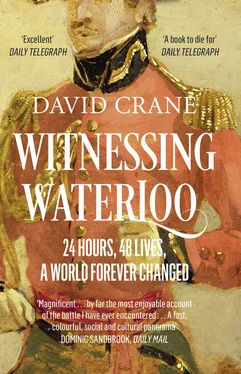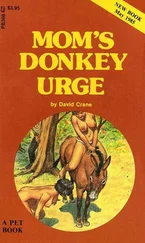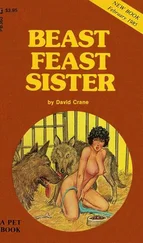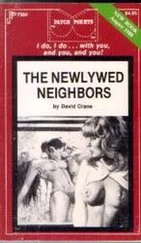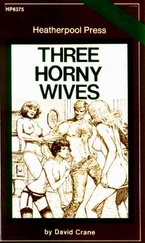Nobody who had not lived through that first heady summer of 1814, insisted the painter Benjamin Haydon, could have any inkling of what it was like to feel a whole country’s exhilarating sense of liberation. For the first time since the phoney peace of 1802, ordinary men and women had been able to travel abroad again, and as naval and Peninsular officers married, and their wives got pregnant and the country’s women caught up with fashions, and British artists saw Old Masters they had known only from prints, Britain looked forward to a world un-shadowed by war. ‘All the town was out to see them,’ 1the great Victorian engineer, James Nasmyth – just a lad at the time – recalled of the magical night when the whole city of Edinburgh, generous in victory to a beaten foe, had turned out to watch the passage of French prisoners from the castle down to their transports at Leith; ‘they passed in military procession through the principal streets, singing as they marched along their revolutionary airs, “Ça Ira” and “The Marseillaise.” The wild enthusiasm of these haggard-looking men, lit up by torchlight and accompanied by the cheers of the dense crowd who lined the streets and filled the windows, made an impression on my mind that I can never forget.’
In the year since then peace had delivered on few of the hopes of Cockburn and his fellow liberals – the brilliant Summer of Sovereigns of 1814, when London had been en fête for the Emperor of Russia and crowds pulled Blücher’s carriage through its streets, was already a fading memory – but to a great swathe of the country peace at any price was better than more death, taxation and hardship. ‘We are at the moment smarting under an almost intolerable load of taxation, incurred in fighting other peoples’ battles and in dictating to other nations whether they shall have for their ruler King Stork or King Log,’ the Liverpool Mercury had protested bitterly when the first news of Bonaparte’s escape reached England. ‘Such idle squabbles have deeply injured our moral character, almost exhausted our national resources; and reduced a great portion of our population to a state of ignominy or dependency … To enter into a new war, under such circumstances, must entail upon our country a complication of evils, which cannot be thought of by the philanthropist or the patriot, without the most melancholy forebodings.’
It was perhaps predictable enough that Liverpool merchants, who had scarcely finished toasting the end of hostilities with America, were against another war, but what astonished George Ticknor, an engaging and well-connected young New Englander in Britain for the first time, was the breadth and depth of opposition. He had been taken up in Liverpool by the littérateur and philanthropist William Roscoe, and armed with introductions had made his leisurely way down to London via the Hatton parsonage where the man known as the ‘Whig Johnson’ – the redoubtable classical scholar and pedagogue Dr Samuel Parr – left him in no doubt that it was not just mercantile Liverpool that was against the war. ‘I am for Napoleon versus the pilferers of his pensions and the kidnappers of his person,’ Parr declared, ‘for the army and people of France versus any and every foreign power, which should presume to oppose their sacred right to choose their own sovereign – for brave men versus assassins – for wise men versus blundering monsters – for insurgents in one country versus the confederate enemies of freedom and independence in all countries – for the countless many versus the worthless few – and finally, for a reasonable peace versus unnecessary, unjust and inhuman war.’
For all the rhetorical flourishes, here was the genuine voice of old Whiggery, and ranged alongside Parr was a rainbow coalition that reached from the usual radical suspects at one end to all those children of the Romantic age clinging on to a hero-worship that no crime, betrayal or excess of Bonaparte’s could ever quite eradicate. From London’s clubs to the Royal Academy, from the pages of The Examiner and the columns of The Times to private letters, the debate raged on – it was a war against Liberty, it was a war against Tyranny, it was a Tory war, it was a Necessary war, it was a war for Autocracy against Humanity, it was a war for Christianity against Barbarism – and neither side had any monopoly on the violence of its opinions. For every William Godwin preaching the ‘extirpation’ of the allied soldiers, there was a Wordsworth damning ‘That soul of Evil … from Hell let loose’; for every vinegary old radical like William Blake’s wife demanding the head of poor, mad King George or Byron looking forward to seeing Castlereagh’s adorning a French pike, there were loyal theatre audiences ready to cheer anything remotely royalist to the rafters.
In spite of all the white noise of angry protest in Parliament and in the liberal and radical press, there was a groundswell of patriotic support for the war for which a deeply unpopular government and a despised Prince Regent had only the French to thank. Through the spring of 1815 there had been violent and widespread rioting over the imposition of Corn Laws, but there was no race quite like the French – ‘vain, insolent, shallow … tender without heart, pale, fierce, and elegant in their looks, depraved, lecherous, and blasphemous in their natures!’– and no enemy like Boney to make John Bull forget the price of bread or the weight of his taxes and roll up his sleeves for another fight.
There had never been any doubt, either, in the minds of Lord Liverpool’s Tory government that they would have to fight, and as Britain moved smoothly on to a war footing, and soldiers lobbied for employment and made their wills, and cheering crowds waved goodbye to transports carrying troops to Belgium, and the borders of France were closed and intelligence dried up, the country steeled itself against the coming storm. Since the first battles of the 1790s, parents and wives had lived in permanent dread of the news the Gazettes might bring them, and now again they found themselves trapped in that old, familiar limbo of apprehension and suspense, fighting over the last newspaper or pushing their way through the agitated scrums around booksellers to read the latest placard pasted in the windows.
There would not have been a town in Britain that was not sending its soldiers to Belgium during those weeks of May and early June, hardly a household that was not holding its breath, because never since the Armada had the hopes and fears of the whole country hung on the outcome of one event in the way that they did on the eve of Waterloo. At the height of French invasion scares eleven years earlier the whole country had been caught up in the demands of total war, but these early summer days in 1815 were different again from anything that the country had known, different in immediacy, different in the fissures revealed in society, and different, above all, in that sense of suspended time – William Wilberforce’s ‘fearful interval’ – during which a schizophrenic nation, one face pointed towards Belgium and the other hell-bent on its ordinary pleasures, waited for the first news that hostilities had commenced.
It was on one such day in the middle of June, a Saturday that had seemed like any other that month, at some time after ten in the evening that a middle-aged man might have been seen walking down Chancery Lane in the direction of the Thames. At the bottom of the lane he crossed over to the south side of Fleet Street, and pushing his way through a small wicket gate in an archway beneath a big painted sign for the ‘Waxworks’ paused at the doorway of an old, brick-built terrace house on the right-hand side of Inner Temple Lane.
After the brightness and noise of Fleet Street, there would have been something almost palpable in the silence of the Temple, as if the City itself held its breath, listening to the muffled sounds of lives that went unheard or unnoticed on the other side of Temple Gate. Fifty yards to the west the Coalhole Tavern would be steeling itself against the raucous arrival of the actor Edmund Kean’s ‘Wolf Club’, but for the moment the Inns of Court was a world apart, the still centre of a London that never slept, hidden away between the teeming flow of river life to the south and the ‘bustle and wickedness’ of Covent Garden to the north; between the political and social heartland of Westminster to the west and the City to the east.
Читать дальше
